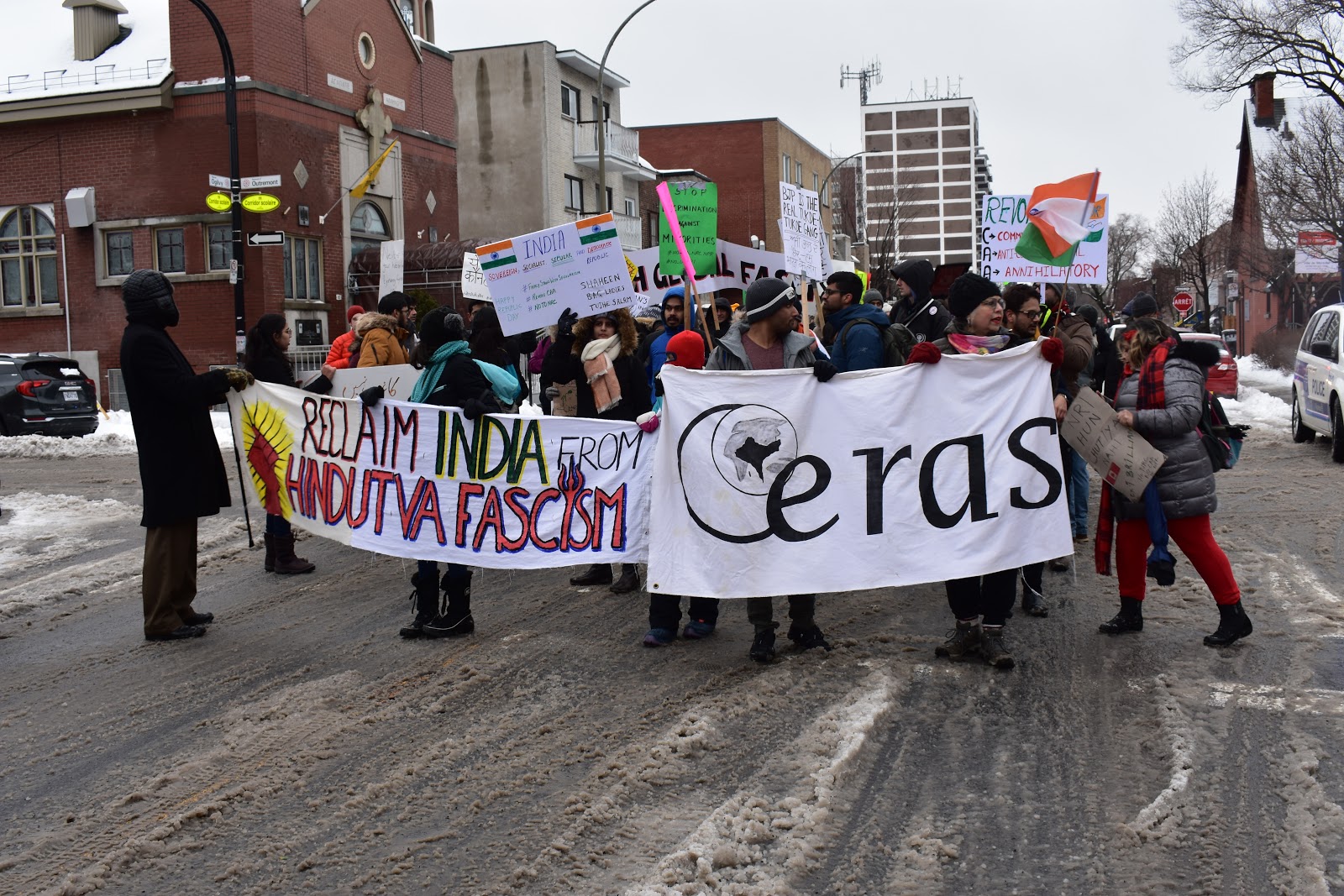Over 100 people marched in protest against India’s government outside Montreal’s Parc metro station on Jan. 26. The march, hosted by India Civil Watch Montreal, was part of a worldwide protest against the right-wing Bharatiya Janata Party (BJP), headed by Prime Minister Narendra Modi. The BJP government has come under fire for adopting discriminatory policies against Muslims and other marginalized groups in India.
Sonali Huria, a former researcher for the National Civil Rights Commission of India, explained that the date was chosen to coincide with the anniversary of the Indian constitution coming into effect. Huria noted that the constitution enshrines equality in its preamble.
“While [the] crisis that India [faces] is unprecedented, what is also encouraging is that the pushback from the grassroots is historic,” Huria said. “I stand here in solidarity with the people, the ordinary citizens who are pushing back against this fascist regime. I reiterate my faith in the Constitution, in the preamble.”
The Montreal march through the streets of the Parc-Extension neighbourhood was in solidarity with the Citizenship Amendment Act protests, an ongoing series of protests in India against a piece of legislation viewed by demonstrators as discriminatory. Passed in December 2019 to provide a path to Indian citizenship for minorities fleeing persecution, the Citizenship Amendment Act applies to Hindu, Sikh, Buddhist, and other religious minorities, but explicitly excludes Muslim minorities.
Since protests began on Dec. 4, 2019, over 3,000 individuals have been arrested. Darin Barney, who attended the march in Montreal, criticized the Indian government for its actions against the demonstrations.
“The oppressive response of the state to [the] protests is unjustified, and we need to call attention to the brutality of that regime,” Barney said. “It’s important for democratic people everywhere to stand up in solidarity with people who are struggling against those kinds of measures by right-wing governments.”
Ayesha Vemuri, a PhD student in communication studies, explained that the protests originated as a grassroots effort from all corners of Indian society.
“What’s remarkable about the protests in India right now is the fact that it isn’t being led by any political party [or] by one central movement,” Vemuri said. “It is common people, a lot of people who have never protested or in their lives [….] The other thing is that it’s remarkable because it’s mostly being led by women. Women are coming out and sitting in these spaces every single day. And they’re cooking there [and] they’re taking care of their kids there [….] This is about common people standing up for themselves, their own rights, and their neighbours’ rights.”
Saeesh Mangwani, U3 Arts, attended the march and commented that the protest movement also included concerns about the legal status of the formerly autonomous region of Kashmir.
“There are so many [issues with this government], it depends on how far you want to go,” Mangwani said. “The major ones that should be noted are that the state has revoked the special status of Kashmir and essentially made it a territory [governed centrally by India] after years of police repression. It’s just a blatantly undemocratic unilateral decision to make Kashmir a part of India […] There is [also] unrest in the northeastern states. The government of India has [historically neglected] that part of the country and [now] it’s just aggravated.”
Despite the government crackdown on protests, Komal Mohite, a PhD student in history and a student activist for the last 10 years, credited the demonstrators for sparking international attention.
“No matter how hard Modi and his gang of goons try to intimidate us, our protests are too much for them,” Mohite said. “Just yesterday, lawmakers in the European Union passed a resolution against the [policies of the Modi government], calling it undemocratic [….] So yes, the international community has taken notice of our protests. They have taken notice of the fascism that is propagated by [Modi].”









